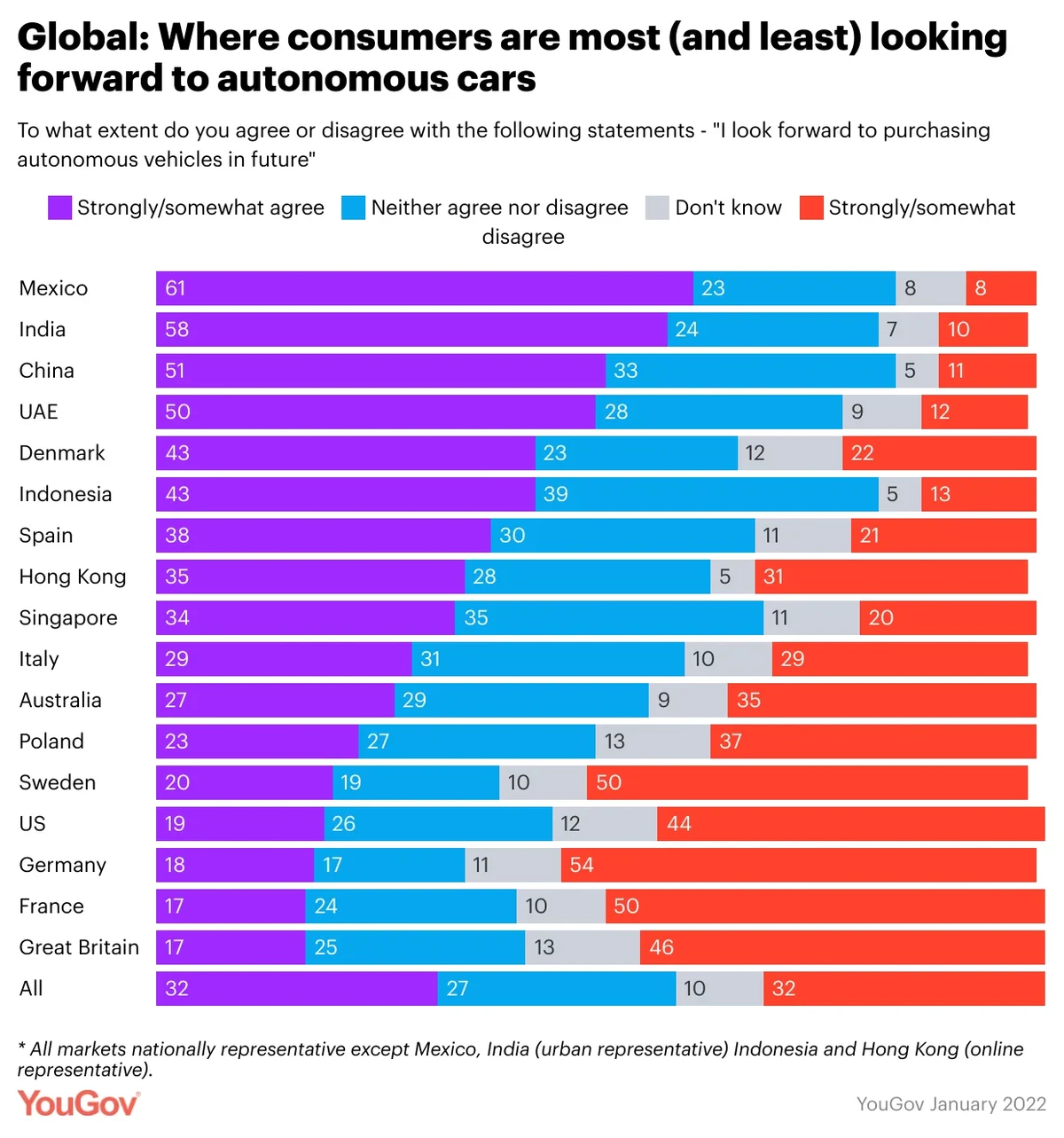
Global: Attitudes towards autonomous cars
Autonomous vehicles are a much-discussed – and still-advancing – aspect of the global automotive industry’s future: one influenced by technological development, population density, and simple scepticism that a car could ever function adequately without a human in the driver’s seat.
But what do the public think?
Global YouGov data shows that, across 17 international markets, the public are evenly split: a third (32%) agree that they’re looking forward to purchasing autonomous vehicles, but another third disagree, while a quarter (27%) won’t answer either way and one in ten (10%) don’t know. Our data shows that enthusiasm for the idea varies from nation to nation.

In Mexico (61%) and India (58%) – nations where our samples are urban, rather than nationally representative – three in five are looking forward to being able to buy an autonomous vehicle; in China (51%) and the UAE (50%), half of the public say the same.
At the less enthusiastic end of the scale, nearly one in five British (17%), French (17%), German (18%) and US (19%) consumers say they’re looking forward to buying autonomous vehicles – with considerably more saying the reverse. This is particularly true in Germany (54% disagree), where the automotive industry is a pillar of the national economy and where people are atypically sceptical of innovations such as electric cars.
One possible explanation may be general discomfort with self-driving cars (which may be treated as synonymous with autonomous cars, even if they are different in some respects). A YouGov survey from last year found that, in Britain at least, most consumers are uncomfortable with the idea of driverless cars as passengers, as drivers, and as pedestrians.
The data is based on the interviews of adults aged 18 and over in 18 markets with sample sizes varying. All interviews were conducted online in February 2022. Data from each market uses a nationally representative sample apart from Mexico and India, which use urban representative samples, and Indonesia and Hong Kong, which use online representative samples.
Receive monthly topical insights about the auto industry, straight to your inbox. Sign up today.
Discover more Automotive content here